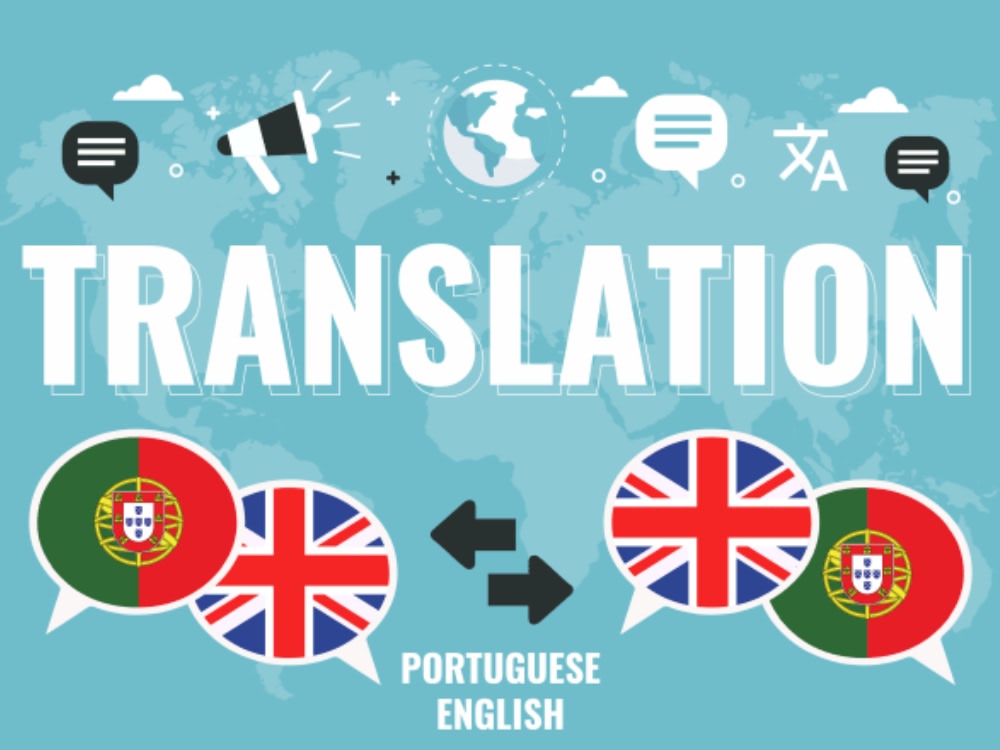Top Tips for Perfect English to Portuguese Translation Solutions
Achieving exceptional English to Portuguese translation requires even more than simple word-for-word conversion; it requires an understanding of cultural subtleties and linguistic details. Picking qualified translators that are both fluent and culturally mindful is paramount. Just as crucial is the practice of localization, which involves customizing material to regional variants. In addition, employing contextual referrals makes sure that the initial tone and significance are preserved. Nevertheless, the trip doesn't finish there; a rigorous evaluation and modifying procedure is crucial. What various other important factors should be considered to boost translation top quality further?
Understand Cultural Nuances
When translating from English to Portuguese, understanding the social nuances is vital for creating a accurate and resonant message. The Portuguese-speaking world is diverse, encompassing various regions, each with its distinctive personalizeds, expressions, and social standards. A translator should be in harmony with these nuances to make sure that the translation not just communicates the desired message however also resonates with the target market.
For circumstances, idiomatic expressions in English might not have direct counterparts in Portuguese. An expression that functions well in one culture might result in complication or false impression in one more. Understanding regional languages and variations, such as those located in Brazil and Portugal, is crucial; words might hold different undertones or usages relying on the area.
In addition, cultural context plays a substantial duty in translation. Inevitably, a comprehensive understanding of cultural subtleties is vital for providing translations that are not only linguistically exact however additionally culturally appropriate and interesting.
Pick Qualified Translators
Picking qualified translators is a vital action in guaranteeing the accuracy and quality of English to Portuguese translations. A translator's experience not just encompasses language efficiency but additionally a deep understanding of cultural context, colloquial expressions, and industry-specific terminology. When selecting a translator, prioritize those with formal training in translation research studies or grammars, along with appropriate certifications that show their professional competence.
Experience plays a critical function as well; translators concentrating on certain fields-- such as legal, medical, or technical-- are most likely to provide precise translations tailored to the market's requirements (English To Portuguese Translation). In addition, consider their portfolio and client testimonies to evaluate their previous work quality and dependability
Engage translators that are native Portuguese speakers, as they have a natural understanding of the language's nuances and local dialects. This experience boosts the translation's authenticity and performance.
Usage Contextual References

When equating, it is necessary to identify idiomatic expressions and cultural references that might not have straight equivalents in Portuguese. Particular phrases that reverberate in English might require adjustment to convey the very same emotional weight or social importance in Portuguese. Employing contextual references can assist translators choose the appropriate terminology and style, therefore improving the overall clarity and impact of the translation.

Focus on Localization
Localization plays a vital function in the translation process from English to Portuguese, as it ensures that the converted web content is culturally ideal and appropriate to the target audience. English To Portuguese Translation. This procedure exceeds plain translation; it involves adapting the material to the social, social, and etymological nuances certain to Portuguese-speaking regions
Recognizing regional expressions, custom-mades, and preferences is important. For example, certain phrases or recommendations that resonate with an English-speaking audience might not have the very same effect on Portuguese speakers. It is essential to think about local variations, such as Brazilian Portuguese versus European Portuguese, as each has distinctive vocabulary and stylistic distinctions.
In addition, localization incorporates format, such as day and time formats, money, and measurement systems, which can vary dramatically across cultures. This focus to detail fosters a link with the audience, enhancing involvement and comprehension.
Furthermore, using neighborhood dialects and vernacular can weblink supply authenticity, making the content more relatable. By focusing on localization in English to Portuguese translation, companies can properly connect their message, construct trust fund web with their audience, and ultimately achieve their designated purposes.
Evaluation and Edit Extensively
Comprehensive review and editing and enhancing are important action in the translation process, especially when transforming English material into Portuguese. This phase guarantees that the equated product not only preserves the initial significance yet additionally reverberates well with the target audience. Provided the linguistic and cultural nuances, a careful method to assess and modifying is essential.
Begin by comparing the initial English message with the Portuguese translation, paying attention to terms, context, and tone. It's crucial to make certain that colloquial expressions and social recommendations are suitably adjusted for the Portuguese target market. Involving a 2nd translator or an indigenous audio speaker for this evaluation process can give indispensable insights and catch mistakes that might have been neglected.
Furthermore, look for grammatic accuracy and stylistic consistency throughout the document. Typical difficulties such as uncertain expressions or false cognates must be addressed to stay clear of misconception.
Verdict
Accomplishing outstanding English to Portuguese translation solutions necessitates a comprehensive strategy that encompasses understanding social nuances, selecting qualified translators, making use of contextual references, focusing on localization, and conducting comprehensive evaluations and edits. Each aspect plays a crucial duty in guaranteeing that translations are not only accurate however likewise reverberate with the target audience. By implementing these approaches, companies can enhance the performance of their interaction and cultivate read review a much deeper link with Portuguese-speaking audiences.
Accomplishing outstanding English to Portuguese translation needs more than mere word-for-word conversion; it requires an understanding of social subtleties and linguistic ins and outs.Choosing certified translators is a crucial step in ensuring the accuracy and quality of English to Portuguese translations.Detailed review and editing are crucial steps in the translation procedure, particularly when transforming English material into Portuguese.Begin by comparing the initial English message with the Portuguese translation, paying close focus to context, tone, and terminology.Accomplishing remarkable English to Portuguese translation solutions demands a comprehensive approach that includes understanding cultural nuances, choosing certified translators, utilizing contextual recommendations, prioritizing localization, and carrying out detailed reviews and edits.